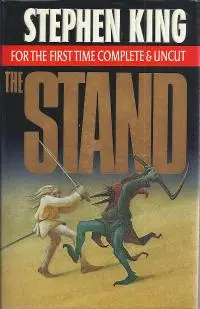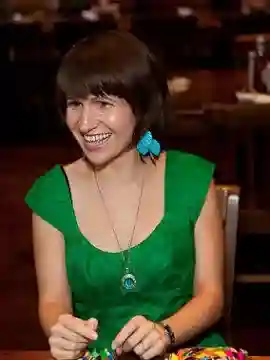I am a fervent Stephen King fan. I have read everything he's ever published, often multiple times. I've seen every adaptation. I've defended him countless times against detractors. I wrote him a fan letter when I was a pre-teen and he in turn mailed me an inscribed publisher's copy of Wizard and Glass, to this day the single most exciting piece of mail I've ever received. I think King is a brilliant writer who creates some of the most memorable characters and narratives of any author I've ever read. I am the walking, breathing representation of King's Constant Reader.
So please understand that I take no joy in saying this: The Stand was a better book before it was uncut.
In 1978, Doubleday released the original edition of The Stand, a book that was 823 pages. The publishing house believed that King's original 1168 page manuscript was too long and intimidating for readers, so they cut out nearly a third. In 1990, after King's popularity skyrocketed thanks to the success of books like It, Misery, and the first two Dark Tower novels, Doubleday re-released The Stand with the missing pages included, a massive tome that became one of the best-selling books of King's career.
But were those pages necessary?
Essentially, I think not. I believe King is strongest with the help of a good editorial eye. After all, the man does go on. I love his rambling ways, but the best writers need an editor, someone who's willing to trim the fat and leave a more powerful, muscular piece in its place. And the truth about King - remember, I love him! - is that nearly everything he's written could use a little fat-trimming. The Stand: Complete & Uncut is an exercise in indulgence, a publishing company catering to its star author without taking into account what's best for that author's work.
 The scenes added to the Complete & Uncut edition don't necessarily add to the book's quality - with two exceptions. The extended scenes between Frannie and her mother make Frannie a more resonant, sympathetic character, and they speak more to her relationship with her father and her conflicted feelings toward her pregnancy. Those pages are gold, and they supplement the original story beautifully.
The scenes added to the Complete & Uncut edition don't necessarily add to the book's quality - with two exceptions. The extended scenes between Frannie and her mother make Frannie a more resonant, sympathetic character, and they speak more to her relationship with her father and her conflicted feelings toward her pregnancy. Those pages are gold, and they supplement the original story beautifully.
The other cut scene that I believe should have been included in the original is the coda "The Circle Closes," where Randall Flagg Russell Faraday wakes on a beach after the atomic blast and begins to live as a god among the indigenous people of the South Pacific. I think this scene adds to the epic universal quality of King's works, the connection each of his novels shares and the impression that none of his stories ever end - that they are, in fact, happening every moment.
However, the scene between The Kid and Trashcan Man with the gun buggery? Unnecessary! That scene somehow skates the line between disgusting and tedious. The chapter titled "No Great Loss," detailing the rape fears of a one-off character? That chapter was no great loss. All of the additional government paranoia pages only belabor a fairly obvious point, and the extended nuclear warhead scene only stalls the momentum at a critical point in the climax.
However, the Complete & Uncut edition offers something of an improvement over the original in that King updated the temporal setting. Larry Underwood's hit single is no longer a disco tune but a bluesy riff, for instance. An ideal version of this book would exist with the timeline updates made by King for the Complete & Uncut version and with the two added scenes listed above, but without the 300 extraneous pages that bog down a truly riveting story.
Anyway, this is all a moot point. It's nearly impossible to find a copy of the original The Stand these days, as the Complete & Uncut edition is the only version on shelves. I borrowed the original from my library when I was in middle school, and was later gobsmacked when I bought the book only to find it 400 pages longer and considerably less streamlined.
I still think The Stand: Complete & Uncut is a tremendous achievement, a book that has captured the fear and fixation of a nation -- of the world -- for decades. No one can craft a character, shape a paragraph, whittle a conflict like King. But he should trust his editors, because an objective eye is often in the right. As writers, we grow attached to our words. We birth sentences and then develop a mean case of postpartum attachment. But we must remember, no matter how great we become - they're not all gems. That's what editors are for.
Have you read both versions of The Stand? Which do you prefer?
Get The Stand: Complete and Uncut at Amazon

About the author
Meredith is a writer, editor and brewpub owner living in Houston, Texas. Her four most commonly used words are, "The book was better."








